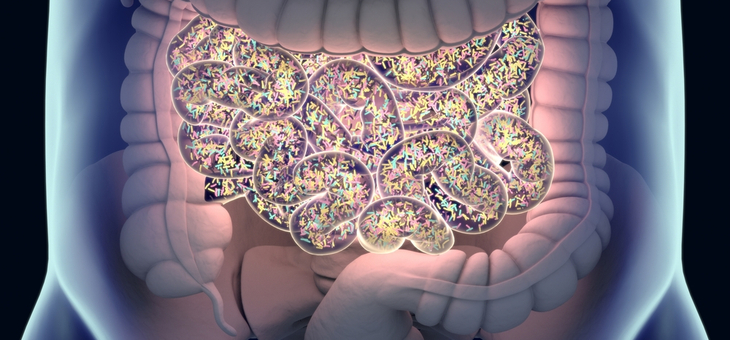Considering the rise in kimchi, kombucha and probiotic products, it’s pretty clear gut health is something we’re all starting to take seriously.
It’s little wonder, really. Over the past few years, increasing volumes of research have emerged showing just how important maintaining a healthy gut is, not just for physical health but also for our mental wellbeing.
While we once squeamishly talked about fostering a healthy balance of ‘good’ and ‘bad’ bacteria in the intestines, now people are exchanging tips on ‘microbiomes’.
So what exactly is the microbiome, why is it so important and how can we protect it?
What is a microbiome?
Every person has an internal ecosystem of bacteria in their bodies dubbed the microbiome – which is basically a trendy term for the environmental conditions in our guts.
“Microbiome literally translates as ‘a small habitat of living things’,” explains Dr Dan Robertson, a medical officer at Push Doctor. “In this case, we’re talking about the billions of good bacteria (along with some viruses and fungi) that live in your body – most of which are found in your gut.”
These bacteria, viruses, fungi and other microscopic living things are referred to as microorganisms, or microbes, for short. They exist mainly inside your intestines in a little pocket of your large intestine called the cecum. Although we have numerous different microbes in our bodies, bacteria are the most studied. This is primarily because there are up to 1000 species of bacteria in the human gut microbiome, and each of them plays a different role in your body.
Combined, these microbes may weigh as much as 1–2kg (2–5 pounds), which is roughly the weight of our brain.
The microbes that live in the body are constantly adapting to our environmental changes, while health status, stress, diet, age, gender, and everything you touch, can alter the composition of your gut bacteria.
This complex community of microbes can help to govern nearly every function of the human body in some way or another, while research has discovered the microbiome can affect everything from asthma and irritable bowel syndrome, to anxiety and depression.
Why is your microbiome important?
Want to avoid winter flu? Start eating with your gut in mind. Studies have discovered that having a healthy microbiome is important in both fostering a strong immune system and keeping us healthy.
“Your microbiome helps regulate your metabolism, breaks food down during the digestion process, protects your body against harmful infections and produces certain vitamins,” says Dr Robertson. “We couldn’t really live without it, because it works hard for our bodies on a day-to-day basis.”
While both genders can benefit from a harmonious microbiome, Dr Robertson says achieving peak gut health is particularly important in women.
“Good bacteria is very important in maintaining vaginal health,” he adds. “If you use soaps or antibiotics, the microbiome can be wiped out and you’re much more likely to get secondary infections like thrush, bacterial vaginosis or urinary tract infections.”
So what can you do to protect your microbiome?
The best way to keep your microbiome ticking over is to make sure you’re getting a healthy blend of probiotics and prebiotics in your diet.
Luckily, you don’t have to head to a fancy health food shop and spend a fortune on supplements to do this. You can easily load up on probiotics by feasting on yoghurt, tempeh (soy product), sauerkraut, kefir (fermented milk drink) and miso. Meanwhile, prebiotics, come in the form of raw garlic, leeks, chicory root, Jerusalem artichokes and bananas.
“Looking after your gut is really important,” says Dr Robertson. “That means eating a balanced diet and not bombarding your microbiome with foods that are hard to break down, such as refined carbs, trans fats and foods high in added sugar.
“Try to stick to regular mealtimes, too, so that your gut can get into a regular pattern.”
While you could just chomp on a handful of raw garlic, it isn’t exactly the most palatable of experiences. Instead try making up a microbiome bowl packed with fermented vegies, chickpeas, coconut yogurt, bitter greens and a good lashing of apple cider vinegar to support the natural detoxification processes in the body.
The potent cocktail of probiotics and vitamin-rich foods will help regulate hormones, digestion, eliminate toxins and boost the immune system during the winter months.
Were you already aware of how important your gut is? Do you think you do enough to look after it?
– With PA
If you enjoy our content, don’t keep it to yourself. Share our free eNews with your friends and encourage them to sign up.
Related articles:
https://www.yourlifechoices.com.au/health/your-health/gut-health-linked-to-alzheimers
https://www.yourlifechoices.com.au/health/wellbeing/five-ways-to-improve-gut-health
https://www.yourlifechoices.com.au/health/wellbeing/how-to-manage-a-healthy-gut

